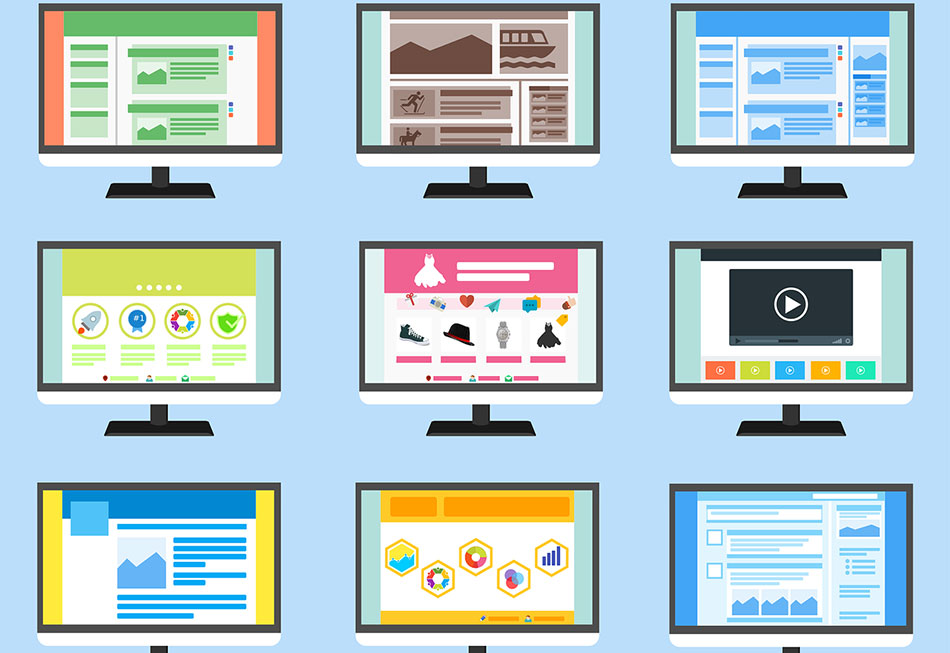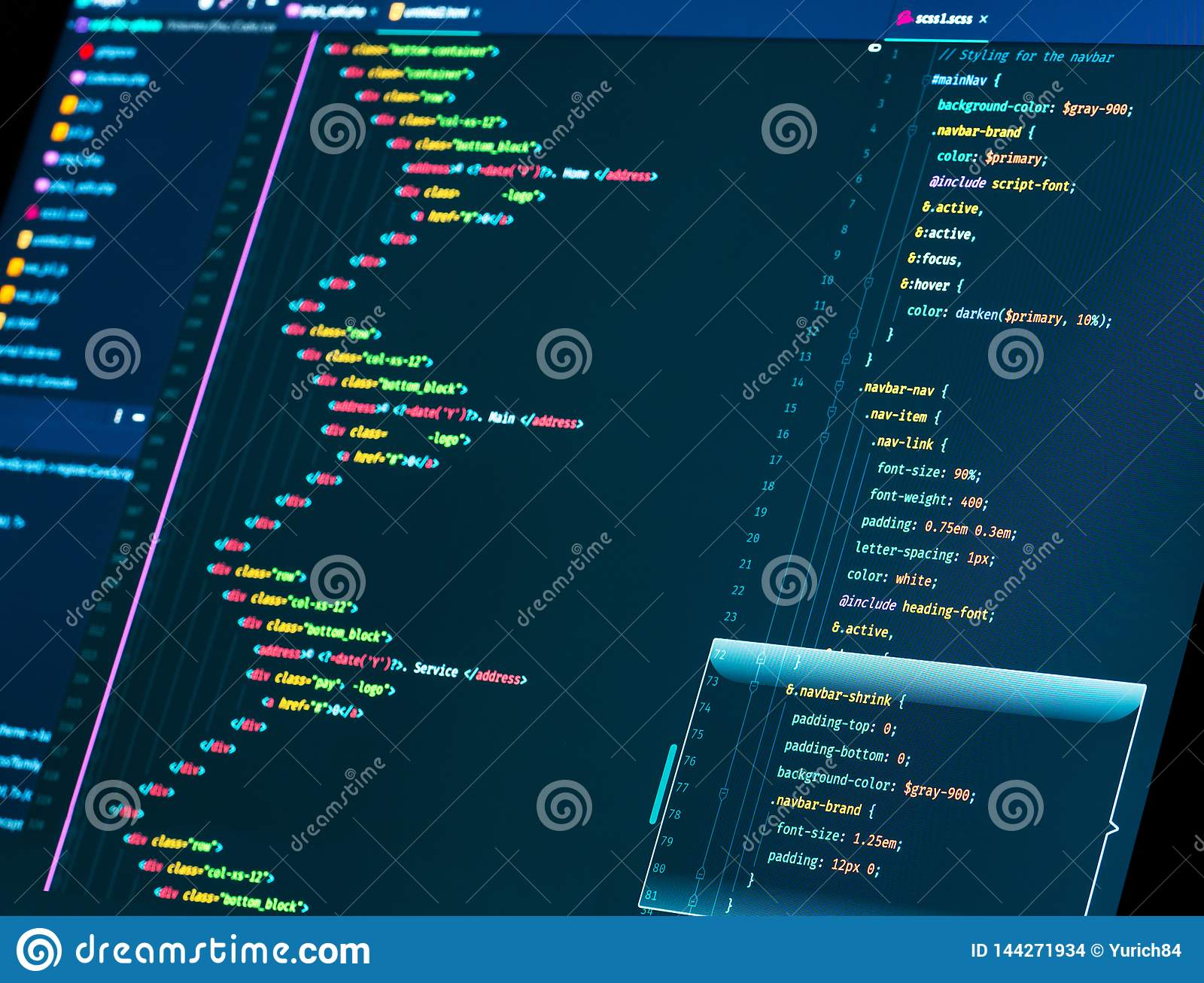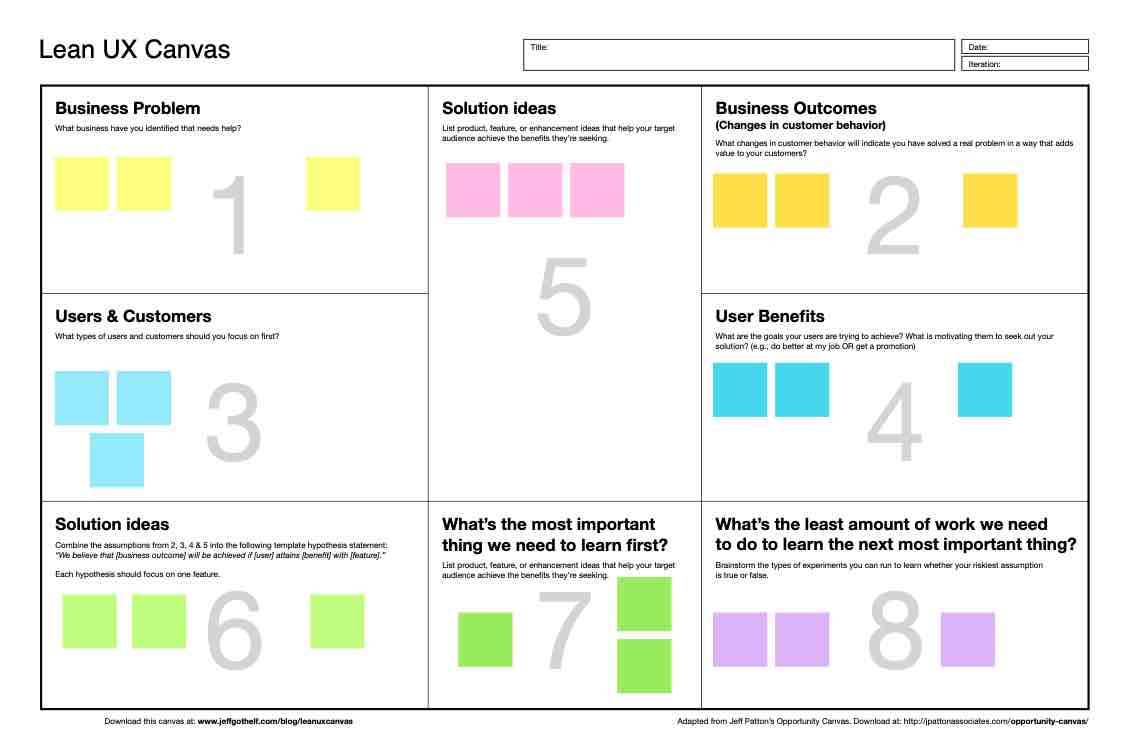
No matter whether you develop an app on desktops or mobile devices, it's important that the app responds to different screen sizes. Responsive applications automatically adjust the UI to suit the available screen sizes. They also re-layout their user interface (UI), when the device's orientation changes. This results in an app that works well on all devices. Continue reading for more information.
Mobile web app
Mobile web app responsiveness plays an important role in web development. Most users today expect web pages to load within two seconds. If web pages take longer than two seconds to load, users get frustrated. Web applications that are lightweight can load faster by using code minification, CDNs and only the information the user needs. Designing a mobile app should emphasize the need to display only essential information and adhere to the "Don't Repeat Yourself" principle.
Apart from being responsive, mobile web apps reduce time to market, because they don't require an approval from Google Play or the Apple App Store. This app has been redesigned to be compatible with different devices. It is more socially-savvy and shareable. Responsive web apps can help websites rank higher in search results and enable customers to find products and services via shared links. It's a win/win situation for all businesses.

Progressive web app
Progressive web applications (PWAs) are hybrid forms of responsive websites that provide app-like functionality and do not require download or installation. It is more reliable than other responsive websites, uses less memory and can often be installed in a fraction of the time. It can be downloaded directly from the Internet and functions just like any website. PWAs often include hardware sensors to enhance the user's experience. Both types offer similar benefits.
A progressive web app looks and feels just like a native mobile app. It should follow an application shell design and only require minimal page refreshes. The app should also be offline-friendly so that users can use it without being online. The user's device can have progressive web apps installed on its home screen. They are available and fresh when new content is published. They can also have the same features as a native mobile app.
An adaptive web app
Adaptive web apps are the new standard for mobile-friendly websites. These apps automatically adjust to the screen size of any device they are used on. Unlike traditional apps, they are not available in app stores. This is an important advantage since it allows websites to be accessible from any device, regardless what resolution. Despite their limitations these apps can be a cost-saving tool that can improve the user experience and reduce site costs.
A web application must be adaptable to the specific device it is being used on. It is impossible to create the same website for all devices. It's better to create a strategy that adapts to the screen resolutions of different devices. This is the progressive enhancement technique. This strategy works best for older browsers.

Native mobile app
Native apps are software programs that run "live" on mobile devices. A responsive design, on other hand, is flexible enough to fit any screen size. Because of this, the design changes as needed based on the device screen size, such as changing from a single column to two or three. It might also convert button-based to drop-down lists. Some responsive apps may require manual updates while others can be automatically updated.
Native apps take more time and cost than responsive websites. Native apps perform better than responsive websites, so they are more effective. Even though native apps are more effective, not everyone needs one. Most businesses, however, have a mobile-optimized web site. A responsive platform is a web platform that offers the same functionality, and is equally efficient for businesses. Native apps are a great tool to increase brand awareness. Responsive app have many advantages.
FAQ
What kind of websites should I make?
It all depends on what your goals are. To build a business around your website, you may want to focus on selling products online. You'll need to build a robust eCommerce site to do this successfully.
Other popular types of websites include blogs, portfolios, and forums. Each of these requires different skills and tools. For example, to set up a website, you need to understand blogging platforms such WordPress or Blogger.
When you choose a platform, you will also need to figure out how to customize the look of your site. There are many templates and themes that are free for each platform.
Once you've selected a platform to build your website, you can start adding content. Your pages can be filled with images, videos and text.
You can publish your website online once you have launched it. Once published, visitors can view your site in their browsers.
Do I hire a web design firm or do it myself.
If you are looking to save money, don't spend on web design services. But if you want quality results, then hiring someone else to create your website may not be worth the cost.
There are many ways to create websites from scratch, without having to hire expensive designers.
If you're willing put in the work, you can create a website that looks great using tools like Dreamweaver.
An alternative option to outsourcing your project is to hire an experienced freelance web designer who charges per-hour instead of per job.
How do I create my own website?
This will depend on the type and purpose of your website. Are you trying to sell products online, create a blog or build a portfolio of websites?
It is possible to create a basic website with HTML and CSS (a combination HyperText Markup Language & Cascading Style sheetss). While it's possible to create a simple website using HTML and CSS, most web developers recommend using a WYSIWYG editor such as Dreamweaver or Frontpage.
Hire a freelance web developer if your skills are not in-depth. A freelance developer can create a website tailored to your needs.
You can either pay a flat rate per project or an hourly rate to a freelance developer. It depends on the amount of work that they do in a given time frame.
For example, you might pay $50-$100 an hour to a company. You'll usually get higher rates for larger projects.
In addition, many freelance websites list available jobs. You can search there before you contact potential developers directly.
WordPress is it a CMS?
The answer is yes. It's a Content Management System. CMS allows you control your website content using a web browser and not an application like Dreamweaver, Frontpage or Frontpage.
WordPress is absolutely free! Hosting is all you need, and it's usually free.
WordPress was originally created to be a blogging platform. But WordPress now offers many more options, such as eCommerce sites or forums, membership websites and portfolios.
WordPress is very easy to set up and install. It is necessary to download the installation file from their site and upload it on your server. You can then visit your domain name using your web browser to log in to your new website.
After installing WordPress, you'll need to register for a username and password. After logging in, you will see a dashboard that allows you to access all your settings.
This is where you can add pages or posts, images and links to them. If editing and creating new content is easier for you, skip this step.
If you prefer to work with a professional web designer, you can hire them to manage the entire process.
How do you choose a domain name
Choosing a good domain name is essential. It is essential to have a unique domain name. People will not be able find you when they search your product.
Domain names should be simple, short, easy-to-remember, relevant to your brand and unique. In order to make your domain name memorable, people should be able to type it into their browsers.
Here are some ideas to help you choose a domain.
* Use keywords related your niche.
* Avoid using hyphens (-), numbers and symbols.
* Don't use.net or.org domains.
* Avoid using words that are already taken.
* Try to avoid generic terms like "domain" or "website."
* Make sure it's available.
How much does it cost for a website to be built?
The answer depends on what you are trying to achieve with your website. Google Sites may not be required if you simply want to provide information about yourself or your company.
If you want to attract more visitors to your website, however, you will need to pay for something stronger.
The most common solution is to use Content Management Systems (like WordPress). These programs enable you to create a website in no time. You won't be hacked because these websites are hosted by third parties.
Squarespace, a web design service, is another option. They offer a variety of plans ranging from $5 per month to $100 per month, depending on what you want to include on your site.
Statistics
- When choosing your website color scheme, a general rule is to limit yourself to three shades: one primary color (60% of the mix), one secondary color (30%), and one accent color (10%). (wix.com)
- Did you know videos can boost organic search traffic to your website by 157%? (wix.com)
- It enables you to sell your music directly on your website and keep 100% of the profits. (wix.com)
- In fact, according to Color Matters, a signature color can boost brand recognition by 80%. There's a lot of psychology behind people's perception of color, so it's important to understand how it's used with your industry. (websitebuilderexpert.com)
- Is your web design optimized for mobile? Over 50% of internet users browse websites using a mobile device. (wix.com)
External Links
How To
How to use Drupal 7 for Web Design
Drupal is one of the most popular Content Management Systems (CMS) available today. It was developed back in 2003 by Dries Buytaert from Belgium. Named after the names of its two developers, Dirk Buijtewaard (from Belgium) and Pierre d'Herbemont (from France). Drupal was released as an open-source CMS in 2005. There have been many versions of Drupal since then. Today, Drupal is used by many websites and companies around the world.
Drupal is a popular choice for website owners because of several reasons. It's free to download. Second, it is easy to customize and extend. It is also very well documented. It provides tremendous support via IRC channels and forums. Fifth, it can be expanded via modules. Sixth, it can support multiple languages. It is also easily customizable. Eighth, it's scalable. It is secure. Tenth, its reliability is assured. Finally, Drupal is supported by the entire community. Drupal is an excellent choice for your next development project.
You might wonder what makes Drupal stand out from other CMS platforms. It's easy. Drupal is an Open-Source Content Management System. Drupal is free to download and use. With Drupal, you have complete control over your website. You have complete control over your website. You can add or delete pages.
Drupal is a good choice if you don't have the technical skills to build a website. Drupal, unlike other CMS, doesn't require you to know programming to build your website. You only need to know how Drupal works. After that, you'll be able customize your website according to what you need.
Drupal has many themes and plugins that are already pre-built. These plugins are a great way to enhance the functionality of Drupal. You can use the Contact Form module, for example, to collect visitor contact information. Google Maps is another option to show maps on your website. Drupal includes thousands of premade templates. These templates will give your website a professional appearance.
Drupal's flexibility makes it extremely flexible. Drupal is extremely flexible. You can add new modules to your site or even replace them without worrying about compatibility. If you need to integrate social media in your website, it can be done quickly. You can also set-up RSS feeds, email subscriptions, etc.
Drupal is extremely customizable. Drupal lets you add custom fields, forms, manage users and much more. Drupal is capable of creating complex layouts.
Drupal is also reliable and sturdy. Drupal is both stable and scalable. Also, it offers excellent security features. So if you're looking for a good web development platform, then Drupal is worth considering.